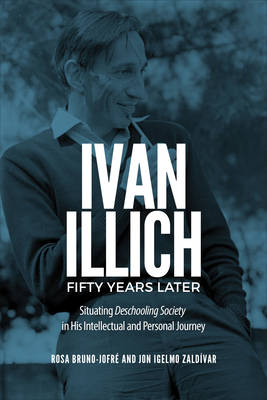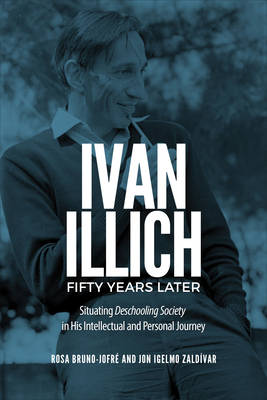
- Retrait gratuit dans votre magasin Club
- 7.000.000 titres dans notre catalogue
- Payer en toute sécurité
- Toujours un magasin près de chez vous
- Retrait gratuit dans votre magasin Club
- 7.000.000 titres dans notre catalogue
- Payer en toute sécurité
- Toujours un magasin près de chez vous
Ivan Illich Fifty Years Later
Situating Deschooling Society in His Intellectual and Personal Journey
Rosa Bruno-Jofré, Jon Igelmo ZaldívarDescription
In 1971, priest, theologian, and philosopher Ivan Illich wrote Deschooling Society, a plea to liberate education from schooling and to separate schooling from the state. On the occasion of the fiftieth anniversary of its publication, Ivan Illich Fifty Years Later looks at the theological roots of Illich's thought and the intellectual and ideological strands that contributed to his ideas.
Guided by the central question of how Illich reached the point of writing Deschooling Society, the book sheds light on how Illich produced a critique of schooling that can be defined by its eclecticism. Bruno-Jofré and Igelmo Zaldívar explore how this controversial book was framed by Illich's early neo-scholastic and anti-modern foundation, his discovery of St. Thomas through Jacques Maritain, and the existential turning points that influenced his public life and intellectual direction in moving from a critique of the Church as institution to a critique of schooling. Drawing from the interpretative theories of Quentin Skinner, Reinhart Koselleck, and William H. Sewell and from concepts such as educationalization, transnationality, and configuration, among other heuristic tools, the authors provide an original and cross-disciplinary analysis of Deschooling Society and its place in Illich's journey.
Spécifications
Parties prenantes
- Auteur(s) :
- Editeur:
Contenu
- Nombre de pages :
- 176
- Langue:
- Anglais
Caractéristiques
- EAN:
- 9781487545062
- Date de parution :
- 06-10-22
- Format:
- Livre relié
- Format numérique:
- Genaaid
- Dimensions :
- 154 mm x 230 mm
- Poids :
- 385 g







